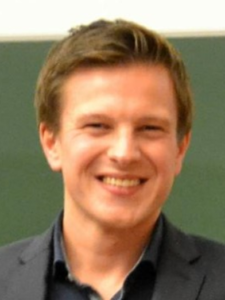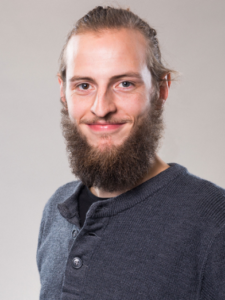Open Access leads to heated debate
-
 Foto: Ram Joshi (Creative Commons)
Foto: Ram Joshi (Creative Commons)
Researchers disagree about the Open Access plans of the research funding body NWO (Netherlands Organisation for Scientific Research). Opponents fear chaos and poorer articles, supporters are delighted that journals will no longer earn millions from the work of others. Both camps have started petitions.
It sounds like an attractive ideal: scientific publications that are free to everyone in the world from the moment of publication. NWO wants that to become reality as of next year, at least for the research projects that it finances. Under the name of ‘Plan S’, they announced this Open Access intention in September. But not all scientists are happy about the plans.

Many professional journals currently have a paywall. Scientific articles can be viewed only if the research organisation buys a subscription to the journal in question, which often is expensive. This is an undesirable situation in the eyes of NWO, more than 15 (predominantly European) sister organisations and the European Commission – combined for this objective under the name of cOAlition S. Research paid with public funds should also be publicly accessible, they reason.
In Plan S they reverse the pay model and make it an Open Access form. In this model, it’s no longer the reader who pays, but the scientists (or his/her university) when the article is published in the journal. cOAlition S hopes that scientific publishers will adjust their earning model to this system.
‘It’s ridiculous that professional journals earn millions’
You might think that this is a win-win situation. Scientific knowledge is more widely accessible – for example, for less endowed universities in non-Western countries or for general practitioners or other professionals who aren’t somehow connected to a research organisation. At the same time, universities don’t have to lose out. The extra publication costs they’ll incur can be paid with the money that they save on subscriptions to scientific magazines.
‘Much too fast’
Some scientists feel that Plan S is a good thing to aspire to, but they fear that it will lead to a lot of chaos. ‘Open Access is fantastic,’ says Dutch chemist Hidde Elferink. ‘I support the idea of accessible knowledge, but this plan is being implemented much too fast.’ He signed an online open letter criticising the plans.
One of his fears is that the most highly respected journals will not want to adjust their earning model. ‘They’re not going to do that for those few European countries who are now advocating it.’ They simply earn too much with paid subscriptions, explains Elferink, more than what they’d probably earn if they only charged publication costs.
In addition, he wonders why NWO also wants to abandon the so-called ‘hybrid’ model. This is a sort of Open Access form used by some journals in which some articles aren’t available for free and others are (often with an extra charge). ‘This now works well in our sector. The qualitatively good journals aren’t completely Open Access, but a good deal has been made with publishers such as the American Chemical Society. As a result, all of the articles we publish are Open Access, without any extra costs.’
In the Plan S model, that will no longer be possible (after a still undefined transitional period). Elferink fears that this could be difficult for young researchers in particular. ‘There’s a chance that they’ll only be able to publish in less renowned journals, with all of the related negative consequences for their career opportunities.’ A good list of publications is very important for researchers in order to secure their scientific futures.
A final, and to his mind a very essential, concern is that journals could become much less critical as a result of Open Access. ‘If researchers pay in order to publish, this could encourage publishers to accept articles more quickly.’
‘Something has to change’
Benedikt Ehinger takes the exact opposite view. The brain researcher also signed a petition about Plan S, but then one that supported NWO’s plans. ‘Not every organisation is wealthy enough to buy a subscription to all those journals. Something has to change, and this is a good beginning.’

The German postdoc thinks that top journals like Nature and Science will eventually become more realistic and accept the Open Access model. ‘They do a lot of huffing and puffing, but in the end they also just want to publish top research.’ He doesn’t share the concern that Plan S will be detrimental to the quality of articles. ‘The reputation of those major journals doesn’t correlate so strongly with the quality of the articles they publish. A lot of the often spectacular studies aren’t confirmed by subsequent research.’
He understands some of the criticism. ‘Look, the publication costs of existing Open Access journals are often high, sometimes a few thousand euros. That leads to poorer countries being excluded, which is a problem.’
To solve this problem, he thinks that you could take so-called preprint-servers as an example. These are online journals in which scientists can publish an article for free. Colleagues can then comment on the article. ‘All of the quality checks are then done for free since scientists will do this peer review without being paid for it. It’s ridiculous that journals earn millions on all those articles. Publishing doesn’t have to be so expensive.’
Scientists could send NWO their feedback on Plan S up until last week. This feedback will be given consideration when further implementing the plans, according to the research funding body.



